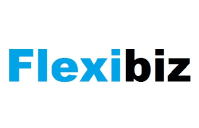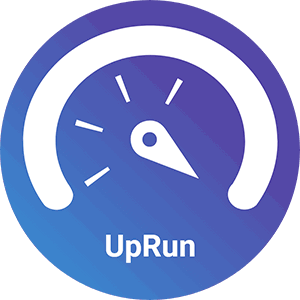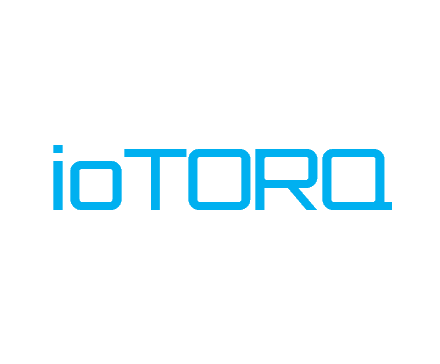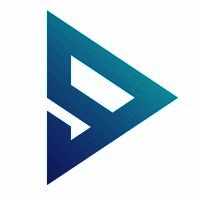Description

CMS by Mar-Kov

Kiran ERP for Manufacturing
Comprehensive Overview: CMS by Mar-Kov vs Kiran ERP for Manufacturing
Let's delve into a comprehensive overview of CMS by Mar-Kov, Kiran ERP for Manufacturing, and LeaderMES, focusing on their primary functions, target markets, market share, user base, and key differentiating factors.
CMS by Mar-Kov
a) Primary Functions and Target Markets
- Primary Functions:
- CMS by Mar-Kov provides comprehensive solutions for inventory management, recipe/formula management, production scheduling, quality control, traceability, and compliance with regulatory standards.
- It offers modules specifically designed for industries like pharmaceuticals, chemicals, cosmetics, and food & beverage manufacturing.
- Target Markets:
- The solution primarily targets small to midsized manufacturers in sectors that require stringent compliance and traceability, such as pharmaceuticals, nutraceuticals, and specialty chemicals.
b) Market Share and User Base
- Mar-Kov's CMS holds a niche market share, particularly strong among small to medium-sized enterprises (SMEs) seeking affordable and specialized ERP solutions.
- The user base is typically manufacturer-centric with a focus on maintaining compliance and quality standards.
c) Key Differentiating Factors
- Focus on regulated industries that require precise formulation and batch traceability.
- Emphasis on quality assurance and compliance with industry-specific regulations such as FDA and GMP.
- Flexibility in customization to cater to specific industry niches.
Kiran ERP for Manufacturing
a) Primary Functions and Target Markets
- Primary Functions:
- Offers end-to-end manufacturing solutions including production planning, inventory management, human resources, financial management, and customer relationship management.
- Supports real-time data processing and analytics for manufacturing operations.
- Target Markets:
- Aimed at a broader spectrum of manufacturing industries, including automotive, machinery, electronics, and FMCG.
b) Market Share and User Base
- Kiran ERP for Manufacturing has a more extensive reach in the ERP market, especially in regions where large-scale manufacturing industries are prevalent.
- Its user base ranges from SMEs to large enterprises looking for a comprehensive ERP solution to streamline operations.
c) Key Differentiating Factors
- Offers a broader suite of integrated modules that cover almost all aspects of manufacturing operations.
- Strong analytics capabilities allowing for real-time data-driven decision-making.
- Scalable solutions that can be tailored to both small enterprises and large multinationals.
LeaderMES
a) Primary Functions and Target Markets
- Primary Functions:
- LeaderMES offers a manufacturing execution system that focuses on shop floor control, real-time monitoring, production optimization, and operational efficiency.
- Features include production scheduling, machine monitoring, and analytics tools for optimizing shop floor performance.
- Target Markets:
- Mainly targets discrete manufacturing industries, particularly those requiring real-time machine and production line monitoring, such as automotive, electronics, and metal fabrication.
b) Market Share and User Base
- LeaderMES captures a well-defined niche within the MES domain, appealing to manufacturers who prioritize operational efficiency and machine connectivity.
- It is favored by mid-sized to large companies with a need for detailed shop floor analytics and real-time production management.
c) Key Differentiating Factors
- Emphasis on real-time data collection and machine connectivity, enhancing transparency and operational efficiency on the shop floor.
- Offers strong machine learning and predictive maintenance capabilities for better asset management.
- Focus on reducing downtime and increasing productivity through seamless integration with various industrial IoT devices.
Comparative Summary
- Market Share and User Base: Kiran ERP, due to its comprehensive suite, tends to have a broader market presence compared to the more niche applications of Mar-Kov and LeaderMES. LeaderMES focuses on specific operational enhancements in manufacturing while Mar-Kov specializes in high-compliance industries.
- Functionality: Mar-Kov is tailored for regulated industries, Kiran ERP provides a full spectrum of ERP functionalities, and LeaderMES excels in shop floor management and real-time monitoring.
- Differentiation: Mar-Kov stands out for regulatory compliance, Kiran ERP for its extensive modularity and scalability, and LeaderMES for its real-time operational insights.
Each product offers unique strengths, making them suited to different segments and needs within the manufacturing sector.
Contact Info

Year founded :
Not Available
Not Available
Not Available
Not Available
Not Available

Year founded :
Not Available
Not Available
Not Available
Not Available
Not Available
Feature Similarity Breakdown: CMS by Mar-Kov, Kiran ERP for Manufacturing
To provide a comprehensive feature similarity breakdown for CMS by Mar-Kov, Kiran ERP for Manufacturing, and LeaderMES, we need to analyze their commonalities, user interfaces, and unique features. Here’s a detailed comparison:
a) Core Features in Common
-
Manufacturing Management:
- Production Scheduling: All these solutions offer robust production scheduling capabilities to help optimize manufacturing processes and improve operational efficiency.
- Inventory Management: Effective inventory tracking and management are fundamental in these systems, allowing businesses to manage stock levels, reorder points, and inventory valuations.
-
Quality Control:
- Consistent features across all platforms include quality assurance measures that ensure production output meets regulatory and customer standards with tools for inspections and compliance tracking.
-
Reporting and Analytics:
- Each system provides analytical tools that offer insights into production statistics, operational performance metrics, and key business KPIs.
-
Integration Capabilities:
- Integration with other business systems like accounting and supply chain management tools is commonly available, promoting data flow across the business.
b) User Interface Comparison
-
CMS by Mar-Kov:
- Mar-Kov prioritizes a clean and functional interface, focusing on ease of navigation for non-technical users. It's generally noted for its straightforward layout, which aids in streamlining the production management process without overwhelming the user with excessive details.
-
Kiran ERP for Manufacturing:
- This solution offers a more customizable interface, allowing users to tailor dashboards and views to fit specific roles and operational requirements. It offers a balance between visual appeal and functional arrangement, catering to enterprises that seek some level of personalization.
-
LeaderMES:
- LeaderMES is known for a visually rich interface with an emphasis on real-time data visualization and interactive dashboards. It is particularly designed for users who benefit from graphical representations of data and lively user interactions.
c) Unique Features
-
CMS by Mar-Kov:
- Chemical Management: Being tailored for industries such as pharmaceuticals and chemicals, CMS by Mar-Kov offers unique features for managing chemical formulation and regulatory compliance, which may not be as focused in other systems.
- Batch Manufacturing Records: Enhanced tracking and documentation for each production batch, ensuring compliance with stringent industry standards.
-
Kiran ERP for Manufacturing:
- Customizable Workflows: One of its standout features is the flexibility to configure and customize workflows that match the unique processes of varied manufacturing industries.
- Global Trade Compliance: This module aids manufacturers dealing with international logistics and regulatory requirements.
-
LeaderMES:
- Real-Time Machine Monitoring: LeaderMES excels in providing real-time analytics and monitoring specifically for machine operations, helping to improve factory floor efficiency, reduce downtimes, and manage maintenance schedules effectively.
- Mobile Accessibility: Offers robust mobile solutions, allowing managers and workers to access necessary information and perform tasks through mobile applications efficiently.
This breakdown captures the essence of the similarities and distinctions between CMS by Mar-Kov, Kiran ERP for Manufacturing, and LeaderMES, allowing businesses to make informed decisions based on their specific needs and industry requirements.
Features

Content Management
User Management
Performance Monitoring
Support and Documentation
Customization Options
Collaboration Features
Performance and Reliability
Content Organization
Content Management Simplified

Reporting & Analytics
Production Management
Supply Chain Management
Financial Management
Quality Assurance
Best Fit Use Cases: CMS by Mar-Kov, Kiran ERP for Manufacturing
When considering CMS by Mar-Kov, Kiran ERP for Manufacturing, and LeaderMES, it's important to evaluate the specific needs of your business or project. Each of these solutions offers distinct features and benefits suited for different types of businesses.
a) CMS by Mar-Kov
Best Fit Use Cases:
- Industries: Specifically tailored for the process manufacturing industry such as pharmaceuticals, chemicals, food & beverage, and cosmetics.
- Regulatory Compliance: Businesses needing stringent compliance with regulations like FDA, cGMP, or HACCP.
- Batch Manufacturing: Companies focused on batch or recipe-based production where precise formulation and tracking are critical.
- Inventory Control: Suitable for businesses requiring advanced inventory management, including lot tracking and traceability.
- Quality Control: Firms that need robust quality management systems to ensure product consistency and safety.
Company Size: Generally effective for small to medium-sized enterprises (SMEs) that focus on specialized manufacturing processes.
b) Kiran ERP for Manufacturing
Best Fit Use Cases:
- General Manufacturing: Ideal for various manufacturing sectors including automotive, machinery, electronics, and textiles.
- Customization Needs: Businesses seeking a highly customizable ERP solution to adapt to specific process requirements.
- Scalability: Suitable for companies anticipating growth and needing a scalable ERP solution that can expand with their operations.
- Comprehensive Features: Firms looking for a full-suite ERP solution covering finance, HR, procurement, and production planning.
Company Size: Can serve a broad range from SMEs to larger enterprises due to its scalability and modularity.
c) LeaderMES
Best Fit Use Cases:
- Discrete Manufacturing: Optimal for industries involved in discrete manufacturing such as electronics, automotive components, and aerospace.
- Real-Time Insights: Businesses that require real-time manufacturing execution data and analytics.
- Production Efficiency: Companies focused on enhancing production floor efficiency and reducing downtime.
- Integration Focus: Firms needing seamless integration with existing ERP systems for enhanced operational visibility.
Company Size: Typically serves medium to large enterprises with complex manufacturing processes and a need for advanced MES systems.
d) Catering to Different Industry Verticals or Company Sizes
- CMS by Mar-Kov: Offers specialized solutions for niche markets, making it an excellent choice for smaller companies in regulated industries.
- Kiran ERP for Manufacturing: Its flexible and comprehensive nature allows it to be applied across a wide range of manufacturing sectors. It caters to both SMEs and larger firms due to its scalable architecture.
- LeaderMES: Designed for larger enterprises with significant focus on production floor optimization, LeaderMES bridges the gap between ERP systems and shop-floor operations, offering specific value in complex manufacturing environments.
Ultimately, the choice among these products will depend on the specific requirements related to industry, company size, operational complexity, and strategic goals.
Pricing

Pricing Not Available

Pricing Not Available
Metrics History
Metrics History
Comparing undefined across companies
Conclusion & Final Verdict: CMS by Mar-Kov vs Kiran ERP for Manufacturing
To provide a comprehensive conclusion and final verdict on CMS by Mar-Kov, Kiran ERP for Manufacturing, and LeaderMES, let's analyze each based on available features, user experiences, pricing, support, and overall functionality.
a) Best Overall Value
CMS by Mar-Kov is known for its specialization in industries such as pharmaceuticals and chemicals. It offers robust inventory management and traceability features necessary for compliance-heavy industries.
Kiran ERP for Manufacturing is a comprehensive solution for small to medium-sized manufacturers, offering diverse functionalities that include production planning, quality control, and supply chain management. Its pricing is competitive for the value it offers.
LeaderMES primarily aims to optimize shop floor operations and improve productivity, known for its user-friendly interface and real-time monitoring capabilities.
Conclusion: Considering all factors, Kiran ERP for Manufacturing offers the best overall value for small and mid-sized manufacturers due to its wide range of features, competitive pricing, and adaptability to various manufacturing sectors.
b) Pros and Cons of Each Product
CMS by Mar-Kov
- Pros:
- Industry-specific modules for pharmaceuticals and chemicals
- Strong inventory management and traceability
- Ensures regulatory compliance
- Cons:
- May be overly specialized for general manufacturing needs
- Potentially higher cost for industries not requiring heavy compliance
Kiran ERP for Manufacturing
- Pros:
- Comprehensive manufacturing features
- Competitive pricing
- Scalable for different manufacturing sizes
- Cons:
- May require customization for niche industries
- Some users report a steep learning curve
LeaderMES
- Pros:
- Excellent for shop floor management
- User-friendly interface and real-time monitoring
- Quick deployment
- Cons:
- May lack full ERP functionalities outside of MES
- Best suited for organizations focusing on production efficiency rather than overall operations
c) Specific Recommendations
For companies in highly regulated industries or those with a major focus on compliance and inventory traceability, CMS by Mar-Kov stands as the superior choice.
For manufacturers seeking a well-rounded ERP system that can handle most facets of their operations, Kiran ERP for Manufacturing is recommended due to its robustness and adaptability.
If the primary goal is to enhance shop floor efficiency with a focus on real-time data, LeaderMES should be the preferred choice.
Each system has its strengths, and the decision should be guided by a company's specific operational needs, budget constraints, and desired functionalities. It is advisable for potential users to trial these products, if possible, and consult with each vendor to understand how the solution can cater to their unique business requirements before making a final decision.
Add to compare



